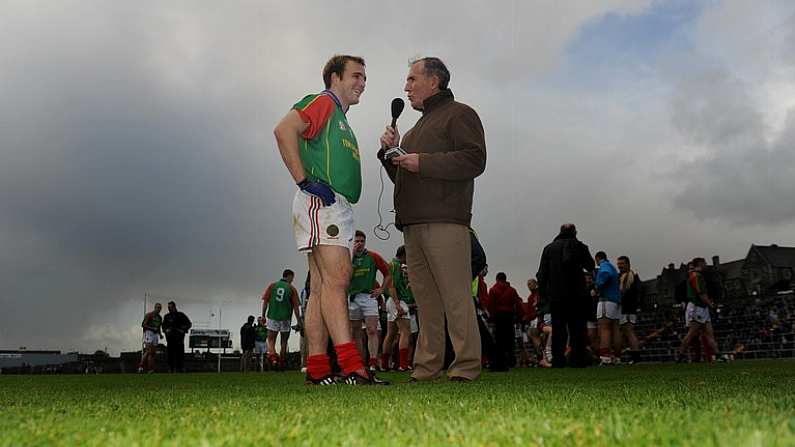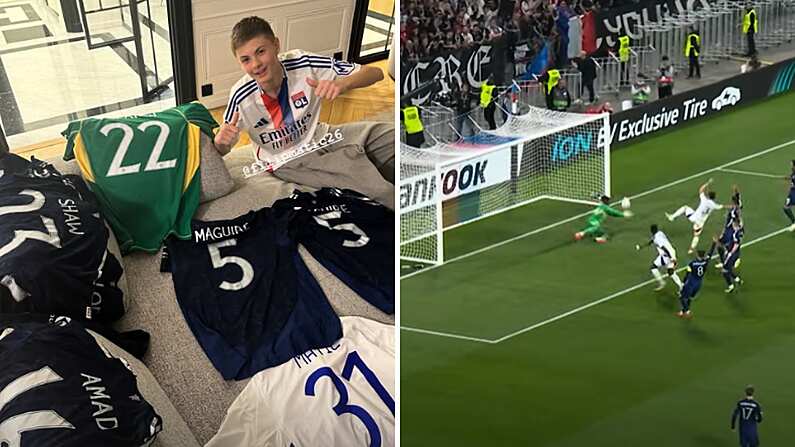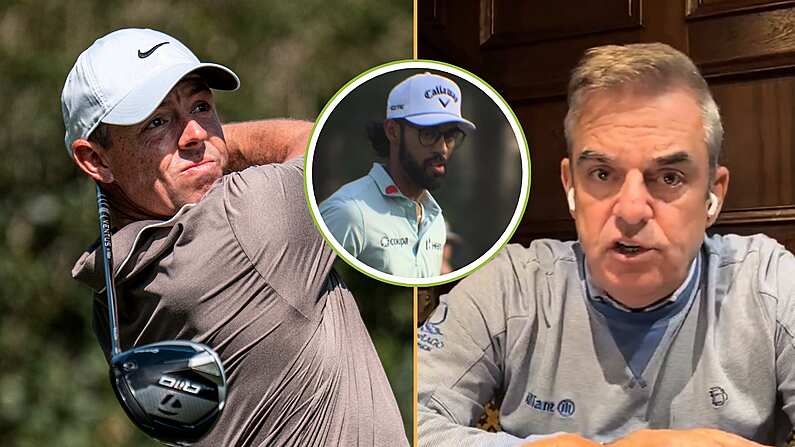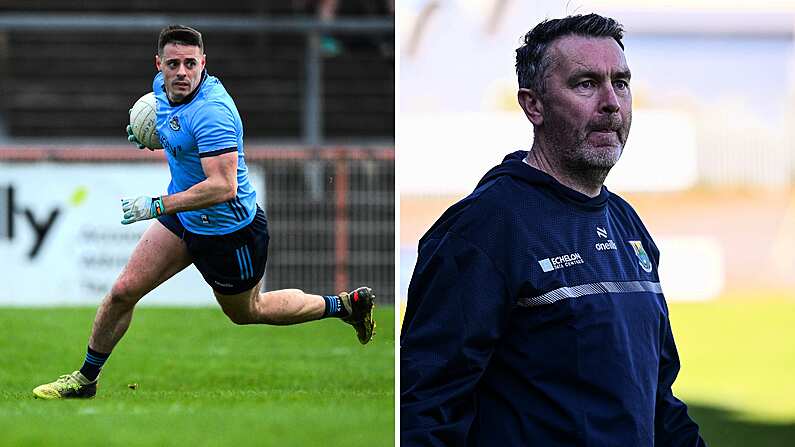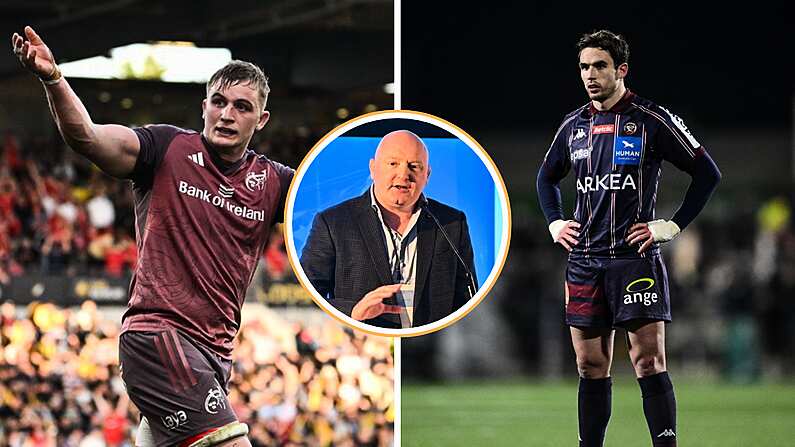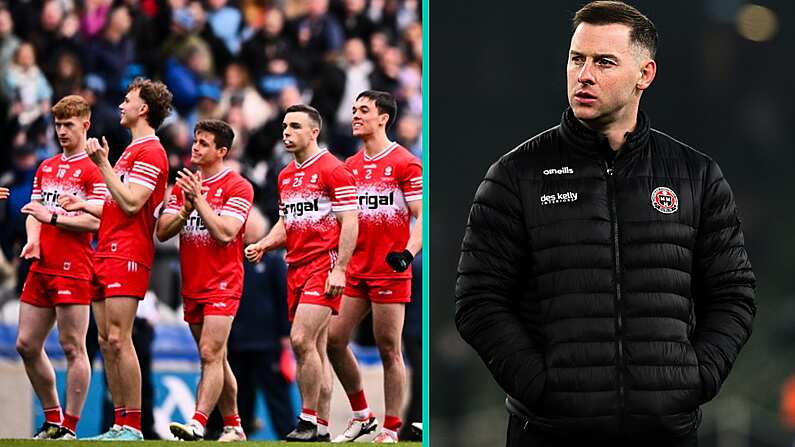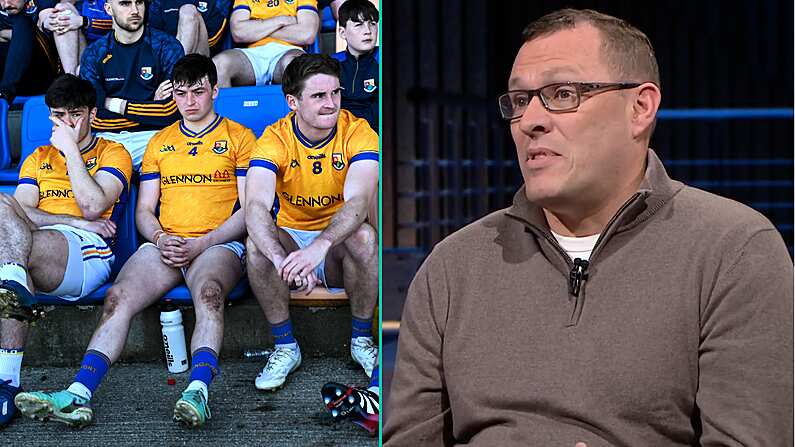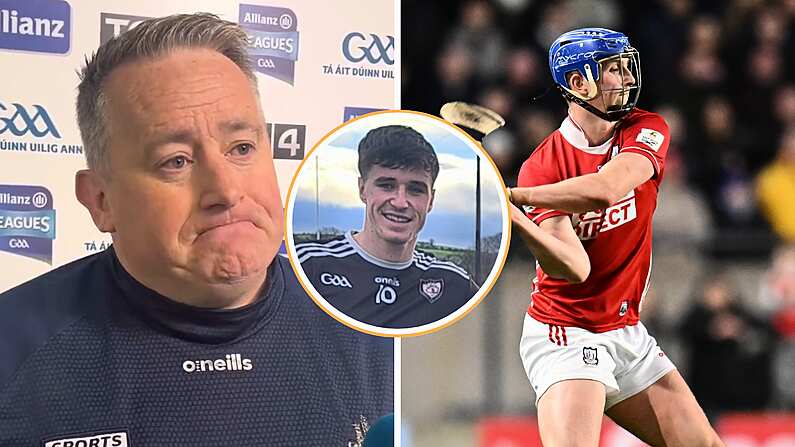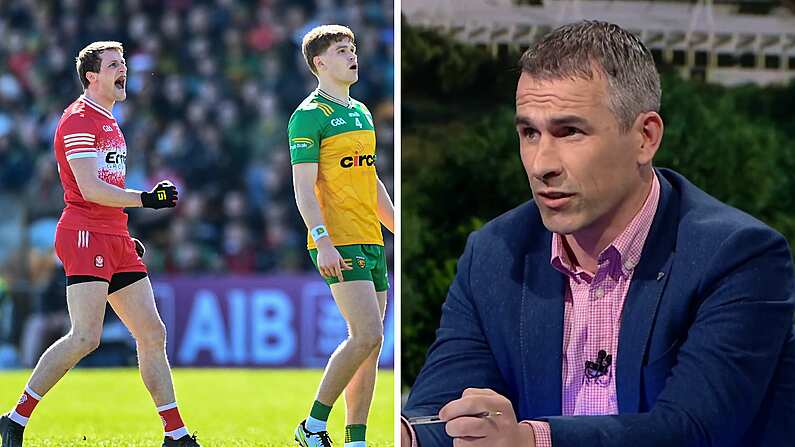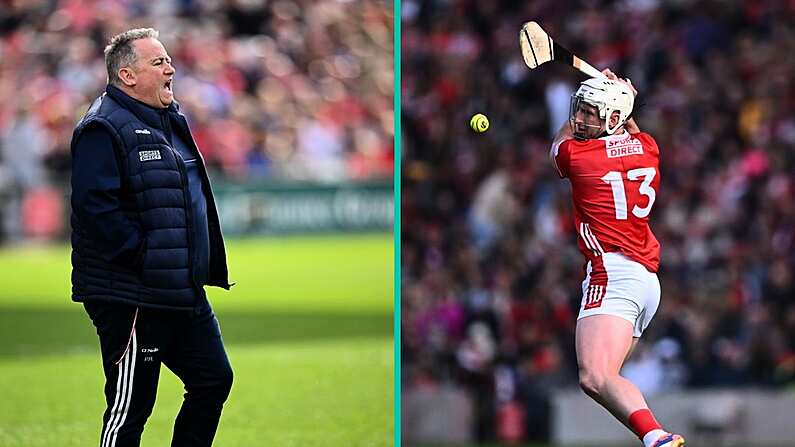A day after they lost their great friend Weeshie Fogarty, the men of Terrace Talk on Radio Kerry gathered around the microphone to remember their departed colleague. From a rich firmament of shimmering tales, let's pluck one that came from a listener, widely known as Dee Butcher. Here's how Tim Moynihan regaled it on air.
Over 25 years ago, he was in hospital with Weeshie. One morning at 5am, Weeshie went across the ward to his bed, and woke him up. Weeshie says to Dee Butcher, 'I have it. I have a commentary in my head and I have to sing it off to you. It's Crokes and Legion in a county final, there's ten minutes to go and they're level. Can I sing it off to you?'
Dee Butcher woke up and said, 'fire away'.
So Weeshie went hell for leather for five or six minutes, and then a nurse came through from the nurses' station, and said, 'What's the commotion lads? It's only 5.15 in the morning?'
He said, 'Leave me along girl! There's two minutes to go and they're still level!'
Weeshie Fogarty became known internationally for the pictures he painted with his commentary and interviews on Radio Kerry and his Monday night sports show Terrace Talk was his main canvas. Before radio, he gained the experience that begat the empathy that made his broadcast genius.
As a player he won four Kerry senior titles with his divisional side East Kerry, and was the substitute goalkeeper on the All-Ireland winning Kerry team of 1969. The custom of his position dictated that he wasn't actually given a medal, something which gently rankled.
When his playing career was cut short through injury, he became a referee of renown: he refereed three All-Ireland semi-finals and would probably have taken a final were it not for Kerry's habit of beating him there. He has the honour of brandishing the first yellow card in GAA history and the notoriety of once using the corner of a Weetabix box when he found himself at a game without it.
Then, in 1996, the Kerry county board helped to launch Terrace Talk on Radio Kerry, and by '97 it found Weeshie Fogarty. Under Fogarty's tutelage, the show became widely recognised as the forum soundtracked to the scraping of denizens' chairs, huddling to take the temperature of the senior football team.
Within the county, the show served another, arguably more important, purpose. If the club is indeed the "lifeblood" of the GAA, it takes men like Fogarty to map the arteries through which it flows.
Sylvester Hennessy is the sports editor of Kerry's Eye and a Terrace Talk regular.
In Kerry, we have our district championships. At the end of the year, you have championships in each area and Weeshie went to the regions. He’d be at the North Kerry final, and he’d bring the microphone everywhere. So he brought the regions to the centre, and everyone wanted to listen.
He made the South Kerry people feel special at a South Kerry final, and so on. That’s unique in Kerry.
In Kerry you have peninsulas, and mountains; you have bays and inlets. Take South Kerry, which was the home of Mick O’Dwyer, Mick O’Connell, Jack O’Connor, Peter Keane, Maurice Fitzgerald. That would be considered the home of football and is called the Iveragh Peninsula, an area with a small population.
They felt geographically isolated, and slightly ignored by the wider world. But Weeshie Fogarty is the type of man who went down to the masses with his microphone. He interviewed the people of all of these nooks and crannies, and he made these people, who felt ignored, feel special.
Fogarty treated everyone in the same way, says Hennessy. The Clanmaurice camogie team were given the same in-studio treatment as the Bomber Liston. If any club was celebrating an anniversary or another special occasion, Fogarty would frequently decamp to their clubhouse for an OB special. Everyone was made feel that they had a stake in the GAA, which is something increasingly absent at a national level today.
He wasn't shy about his roots, and broadcasts were often sprinkled with "my club, Killarney Legion", but it was his dedication to his local club that may prove fruitful for the whole county in years to come. "I was talking to Peter Keane this week", says Hennessy, "and the first thing he said was that ‘I wouldn’t be Kerry manager if it wasn’t for Weeshie Fogarty’".
Keane, having been a selector with Mickey Ned O'Sullivan with the Kerry minors until 2013, was cajoled by Fogarty into taking the role of Legion's senior manager and, after much resistance, eventually relented. Two years later, Keane guided them to a first senior county final since 1946; five years on he is preparing the Kerry senior team for one of their biggest ever-challenges.
At the West Kerry final last Sunday, Hennessy was hugged by strangers who learned of Weeshie's death. "He was loved so much that people were hugging someone like me, just so they could express their love for Weeshie Fogarty".
At a local level, GAA pulls people together from lonely peripheries and elevates the status of their daily lives. That is what Fogarty did.
"Right now in our society", says Hennessy, "we are closing down rural post offices and heading further and further away from rural life. Weeshie Fogarty and Terrace Talk championed rural life".
It didn't matter who you were: you could have been Michael D. Higgins or the chairman of a small club in Longford - he could spot a story in you. Weeshie could spot a story in anyone.
I called him the pied piper of Kerry GAA, because everywhere we went, people followed him.
Weeshie Fogarty: the man who united a kingdom.


